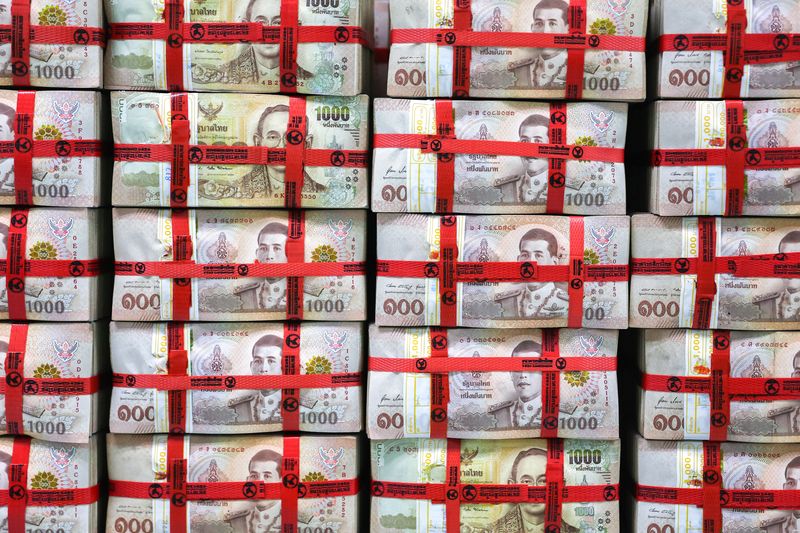BANGKOK (Reuters) - Thailand's central bank said it wants to see household debt levels below 80% of gross domestic product (GDP) to help reduce economic and financial risks, an official said on Tuesday.
But measures introduced so far and a recovery in the economy might not be enough to bring the debt level down below 80% of GDP, Assistant Governor Suwannee Jatsadasak told a media briefing.
Thailand's household debt stood at 86.8% of GDP in the third quarter of 2022, among Asia's highest.
Given the current economic situation, inflation and interest rates, "we think that by 2027, if nothing is done, household debt will be 84% of GDP," Suwannee said.
A debt level higher than 80% of GDP could be a drag on long-term economic growth and pose risks to the country's financial stability, she said.
The Bank of Thailand (BOT) on Tuesday issued a directional paper on sustainable solutions to the country's debt overhang problems, including over how to handle existing debt and to offer responsible lending.
Responsible lending rules should be introduced in the third quarter of this year after seeking opinions from relevant parties in the second quarter, BOT director Oramone Chantapant said.

In the second quarter, the BOT expects to issue a consultation paper over how to allow retail lenders to set interest rates based on debtors' risk profiles, she said, adding such a rule should come into effect late this year.
However, interest rate ceilings have not been removed, Oramone said.